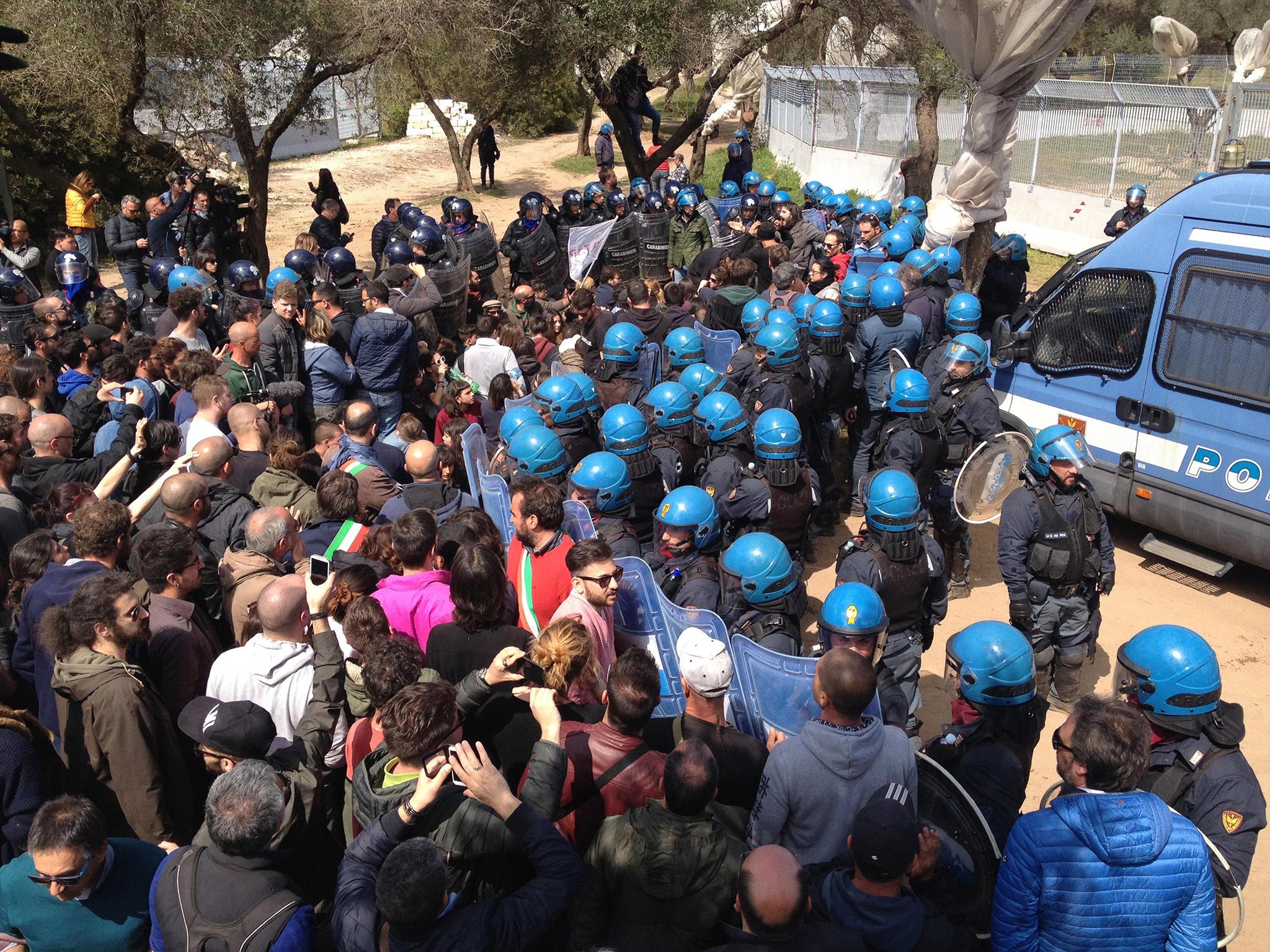Italy uses Mussolini-era law to place community on military lockdown over pipeline project
‘Red Zone’ established around Trans Adriatic Pipeline leaves residents stunned

Your support helps us to tell the story
From reproductive rights to climate change to Big Tech, The Independent is on the ground when the story is developing. Whether it's investigating the financials of Elon Musk's pro-Trump PAC or producing our latest documentary, 'The A Word', which shines a light on the American women fighting for reproductive rights, we know how important it is to parse out the facts from the messaging.
At such a critical moment in US history, we need reporters on the ground. Your donation allows us to keep sending journalists to speak to both sides of the story.
The Independent is trusted by Americans across the entire political spectrum. And unlike many other quality news outlets, we choose not to lock Americans out of our reporting and analysis with paywalls. We believe quality journalism should be available to everyone, paid for by those who can afford it.
Your support makes all the difference.Italian authorities are using a Mussolini-era law to put an entire town under lockdown while they force through a gas pipeline against the wishes of the local community, activists have said.
A so-called “red zone” was declared around Melendugno by the central government’s military police force this month, after months of protests against the effect of the Trans Adriatic Pipeline (TAP) on the local area.
Activists on the ground who contacted The Independent say the police swooped in the middle of the night and barred people from leaving their homes, blockaded streets, and fenced off olive farms.
“Some locals have been expelled and cannot access Melendugno... for the next three years”, Sabina Giese, one resident of the town said.
“We need a pass to use the roads and go home, in the evening there is only police in the roads and everything else is closed and abandoned. People are scared to come to the sea and go in the restaurant. Economy and tourism are affected.”
The town, situated in the region of Puglia, in the heel of Italy’s boot, has been a centre of protests against the uprooting of thousands of centuries-old olive trees to make way for the pipeline.
The project is opposed by local residents and officials, who have been in a tense stand-off with the central government in Rome over the plans.
On the night of 12 November, a local official in Lecce enacted ordinance Decreto Regio (Royal Decree) No 773, which dates back to 1931, to put the territory surrounding TAP construction site “at the availability of the police”.
Now a new barbed-wire fence and concrete barriers, as well as security patrols, are making it harder for local residents to move around the area. People who own land inside the so-called “red zone” need special permits to enter, but everyone else is barred – making it difficult to bring labour in to harvest olives inside the zone.
Locals have also complained of alleged property damage from the movement of vehicles. Local police could be reached for comment.
After progress was slowed by protesters in the spring, the consortium behind the pipeline was forced to wait until the start of November to again begin uprooting the trees – prompting the action of the police a week ago. The pipeline’s proponents say the trees can be re-planted after construction work on the project is finished.
TAP is being built to transport natural gas from Greece via Albania to Italy and onto the rest of western Europe. It would connect to another pipeline bringing gas from Azerbaijan.
The project’s proponents say it would increase Europe’s energy security and reduce reliance on coal; it is on course to receive funding from the European Investment Bank.
Join our commenting forum
Join thought-provoking conversations, follow other Independent readers and see their replies
Comments